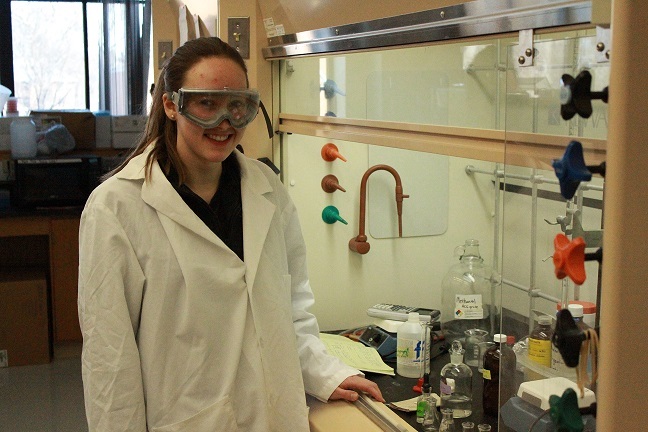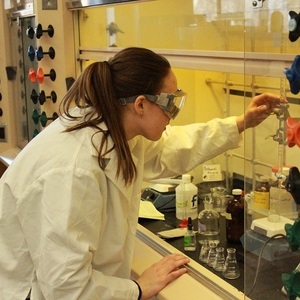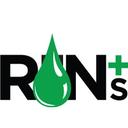College student assesses biodiesel production on Minnesota campus



Photo: Logan Bender
February 16, 2016
BY Jenna Ray
The possibility of biodiesel production at the University of Minnesota, Morris, is driving Hannah Goemann, a junior biochemistry major from Wells, Minnesota. Goemann is partnering with the university’s office of sustainability as well as its facilities management and dining services, and various disciplines including environmental science, environmental studies and chemistry, to research the feasibility of a campus production project. Goemann’s work will help her reach her professional goals and could put the campus one step closer to carbon neutrality.
Last month Goemann became the OOS sustainability implementation-biodiesel assessment intern. Her job is to conduct a preliminary assessment for the potential of biodiesel production at Morris and to develop a report detailing how a biodiesel pilot could work. According to Goemann, that means “collecting data and crunching numbers to figure out if we have the space, resources, people power, and interest to put together a system like this.”
“This is the first time we’ve thought about [biodiesel] at all, so I’ve got to do a lot of initial figuring out of what kind of vehicles we have, how much diesel we use in a year, how much we would be able to produce from the oils used on campus, and other things like that,” she said. “If it turns out to be a worthwhile and sustainable thing, we can move on from there.”
Prior to beginning her internship, Goemann hadn’t thought much about biodiesel. In just a few weeks, though, she’s been inspired by the work of other campuses and touched by the campus’ “overwhelming, positive response.” She also sees a direct path between this work and that which she hopes to pursue.
Advertisement
“My goal is to work with the biochemistry of renewable resources,” she said. “This project has already helped me further develop my communication skills by networking with a diverse array of people and my organizational skills from being able to take so much information and put it into a coherent statement. It’s cool to be integrating classroom learning with practical work.”
Goemann’s project could have ramifications on campus-wide carbon neutrality goals as well. Morris aims to reach carbon neutrality by 2020, and it has decreased its carbon footprint by 40 percent since 2005. According to Sustainability Director Troy Goodnough, using a gallon of biodiesel derived from campus waste oils as an alternative to regular diesel would cut the carbon footprint of the fuel by 90 percent; using this biodiesel to fuel fleet vehicles, then, would help Morris reduce transportation emissions, and thus its overall footprint. While it’s too soon to say just how much biodiesel production could affect the campus’ carbon neutrality, Goemann and Goodnough agree this is another step in the right direction.
“This pilot project helps us take our first steps towards a biodiesel production system,” Goodnough said. “This is another great project between students, faculty and facilities management staff.”
Author: Jenna Ray
Advertisement
Editor/Writer, University of Minnesota, Morris
320-589-6068
jrray@morris.umn.edu
Related Stories
Biodiesel capacity in the U.S. and Canada dipped slightly stable in 2024, with several renewable diesel producers reporting headwinds and lower margins alongside a drove of SAF projects in various stages of development.
The IEA’s Task 39 group has new research regarding the development and status of the sustainable aviation fuel industry.
The U.S. EPA on Nov. 16 released updated RIN data, reporting that nearly 2.11 billion RINs were generated under the RFS in October, up from 1.81 billion generated during the same month of last year.
Conestoga to host SAFFiRE cellulosic ethanol pilot plant
Conestoga Energy and SAFFiRE Renewables LLC announced on Nov. 16 their agreement for Conestoga to host SAFFiRE’s cellulosic ethanol pilot plant at Conestoga’s Arkalon Energy ethanol facility in Liberal, Kansas.
Officials at Calumet Specialty Products Partners L.P. discussed the company’s proposed plans to boost sustainable aviation fuel (SAF) production at its Montana Renewables biorefinery during third quarter earnings call, held Nov. 9.
Upcoming Events










